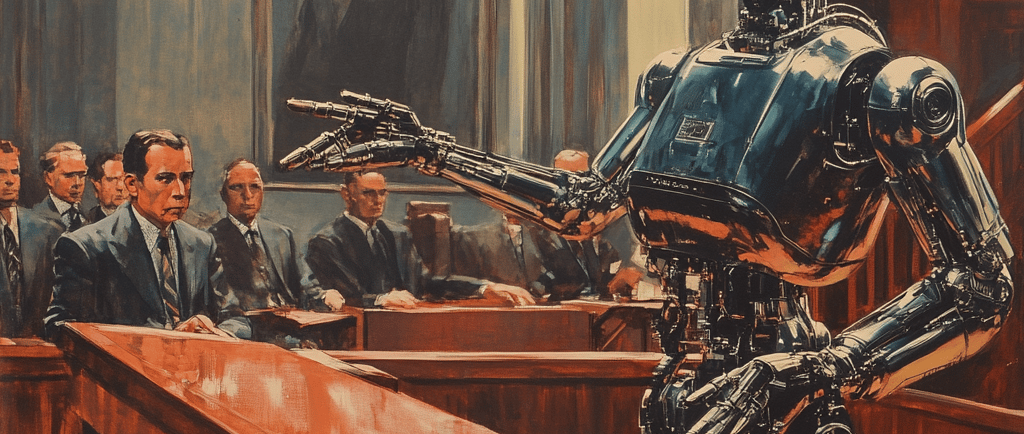AI in the Courtroom
Singapore introduces AI as a legal co-judge.
TIMELINE


There was a moment in my life, not too long ago, while scrolling through my news feed, when I stumbled upon a headline that made my heart skip a beat: Singapore has introduced AI as a legal co-judge. I remember feeling a rush of emotions — disbelief, curiosity, and even a touch of hope mingled with apprehension. The courtroom, a sacred space where justice is sought and truth emerges from chaos, has always struck me as deeply human. The thought of machines entering this realm felt both groundbreaking and unsettling.
Why do I care so much about this? Maybe it's because I’ve always believed that the law, at its core, is about human experience — the stories we tell and the truths we unravel. Legal decisions are influenced by emotions, biases, and intricate narratives. As much as I admire technology, I can’t help but wonder: can an algorithm truly understand the complexity of human emotion and the nuances of personal experience? This isn’t just about the efficacy of legal proceedings; it’s about the very essence of justice itself.
What’s happening in Singapore is a glimpse into a possible future where AI tools assist judges in interpreting vast amounts of data, analyzing precedents, and suggesting outcomes. It’s promising, and perhaps it can enhance efficiency, serving justice faster and with more consistency. But will this co-judge be merely a helper, or could it potentially overshadow the human element? Imagine a scenario where a judge leans too heavily on AI recommendations, entrusting it with decisions that could impact lives forever. The idea continues to swirl in my mind, and I can’t dismiss the tension between innovation and our need for a compassionate touch in the courtroom.
The implications stretch far beyond just legal matters. If AI becomes an accepted part of judicial systems, what does this signal about the trajectory of our society? Are we paving the way for deeper reliance on technology in our most personal affairs? It feels like we’re perpetually standing on the precipice of some grand experiment. There’s an undeniable allure in the potential for efficiency and accuracy, but what happens to the soul of justice in the meantime? I fear that as we chase this efficiency, we may inadvertently sacrifice empathy and understanding, qualities that are often the bedrock of true justice.
My perspective is colored by a mix of hope and trepidation. On one hand, I find solace in the idea that AI could help expose biases or illuminate patterns that human judges might overlook. Perhaps it could lead to more equitable outcomes or a more accessible legal system. On the other hand, there’s a nagging worry that the nuances of human judgment, shaped by experience and emotional intelligence, could be lost in the cold calculations of an algorithm. What happens when we start to trust machines with decisions so deeply rooted in our humanity?
As I reflect on this, I can’t help but wonder about the future we're crafting. Are we converging towards a society where human experience is sidelined in favor of mathematical precision? Will our aspirations for justice be compromised in the quest for technological perfection? These questions linger as I consider the delicate balance between innovation and the moral fabric of our justice system.
In the end, I find myself wrestling with a thought that sends shivers down my spine: Is the world better off with machines in the courtroom, or do we risk losing a vital part of what makes us human in the pursuit of progress?
